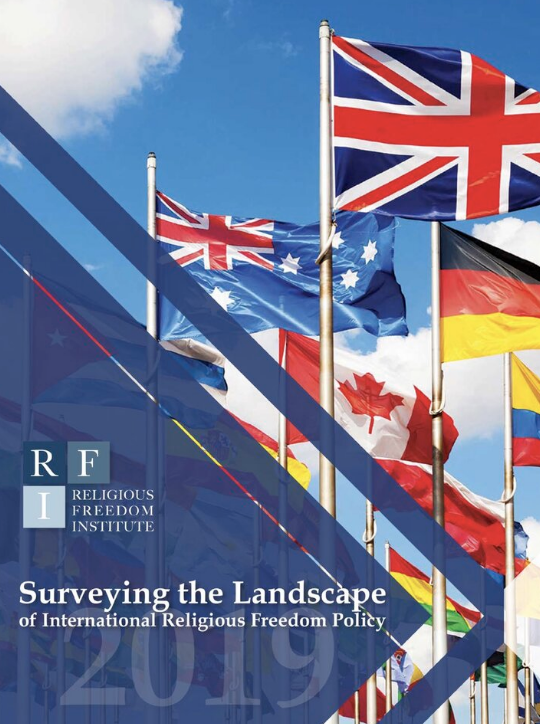Today the Religious Freedom Institute marks International Religious Freedom Day 2020. With only a week until the November 3, 2020 election, it is worth emphasizing that advancing international religious freedom should remain far above the partisan fray—it is a matter that should not depend on any election. The next U.S. administration, regardless of electoral outcome, must continue to prioritize international religious freedom. The status quo for countless vulnerable religious communities around the world is an intolerable crisis.
While there have been notable differences among them—both successes and failures—successive U.S. administrations have advanced religious freedom in America’s foreign policy.
The U.S. Congress passed, and President Bill Clinton signed, the International Religious Freedom Act (IRFA) in 1998, establishing in law the promotion of religious freedom in America’s foreign policy.
In a 2009 article in the Harvard Journal of Law & Public Policy, RFI President Thomas Farr’s assessment (along with his co-author and RFI Senior Fellow William Saunders) was that the George W. Bush Administration “focused a critically important spotlight on governments that persecute” based on religion and “took important steps toward reducing persecution.”
In 2016, Congress passed, and President Barack Obama signed, the Frank R. Wolf International Religious Freedom Act (Wolf Act), which amended and expanded IRFA with additional diplomatic tools and training requirements. Members of RFI’s executive leadership, including Farr and Vice President for Public Policy David Trimble, helped shape key provisions of the 2016 Wolf Act.
And the Trump Administration in June of this year issued a forceful Executive Order on Advancing International Religious Freedom, which stated, “Religious freedom for all people worldwide is a foreign policy priority of the United States, and the United States will respect and vigorously promote this freedom.”
Despite important progress in the past 22 years, continued “threats to religious freedom are many, including technology-enabled state repression of religion, non-state violence aided by inept governance, and blasphemy and apostasy laws that are regularly weaponized against religious minorities or dissenters.” Moreover, protracted displacement of Yazidis from their homeland in Iraq, marginalization leading to genocide against Burma’s Rohingya Muslim community, systematic repression of religious minorities in China, and increasing violence against Christians in Nigeria are among the vast range of egregious violations of religious freedom in our world today.
THE RFI BLOG

Is Egypt’s Government Trying To Take Over Christianity’s Most Important Monastery?

Does Southeast Asia Lead the World in Human Flourishing?

RFI Leads Training Session on Religious Freedom Law and Policy for U.S. Army War College

Oral Argument in Charter School Case Highlights Unconstitutional Motives Behind OK Attorney General’s Establishment Clause Claim

Largest Longitudinal Study of Human Flourishing Ever Shows Religion’s Importance
CORNERSTONE FORUM

Reaffirming Religious Freedom: Bridging U.S. Advocacy and Iraq’s Constitutional Framework

Political Polarization, Same-Sex Marriage and Religious Liberty

Bridging the Gap Between International Efforts and Local Realities: Advancing Religious Freedom in the MENA Region

Challenges to Religious Freedom in Iraq and the Critical Need for Action


